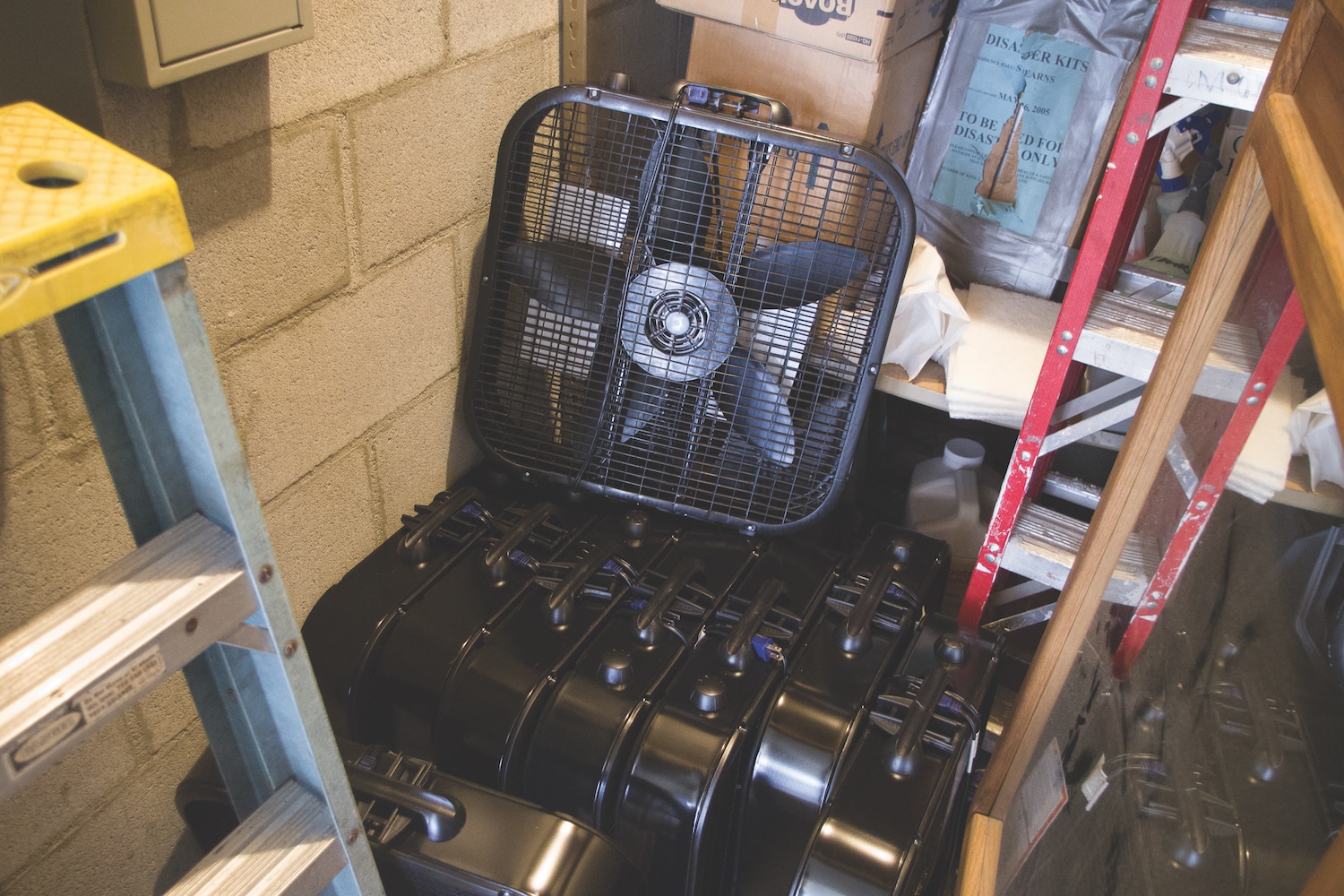
Dean of Students and Vice President of Student Affairs Rob Flot announced to the student body July 15 via email that the college’s original plan to install air conditioning in Stearns Hall before the start of the 2018–2019 school year would be postponed. The departure to California State University, Northridge of Joe O’Hara, senior project manager of Facilities, as well as cost underestimations prompted the postponement.
Flot said that the college’s original estimate for the project was between $1 and $1.5 million. However, upon closer inspection of Stearns’ infrastructure, the estimate ran closer to $2.5 to $3 million. According to Flot, the standard estimate for the five un-air conditioned residence halls is between $1 to $2 million each.
Flot’s email clarified that the project delay did not mean that the college was withdrawing from AC installment altogether.
“Let me be clear, the college is not pulling back on its commitment,” the statement read. “Funding is in place for the Stearns project and engineering plans are confirmed. However, due to unexpected employee departures in Oxy’s Planning, Design & Construction department (the team of professionals that manage big construction projects like this), the College determined that we couldn’t guarantee that the project would be completed in time for students’ return in August.”
Tom Polansky, director of Facilities, described how O’Hara’s departure affected the project’s status and how Facilities has addressed this departure.
“It was a huge loss for us. [O’Hara]’s a great guy and we miss him very much, but people get opportunities,” Polansky said. “We have a new assistant director of planning, design and construction named Ben Neil, who started two and a half weeks ago. So that should help with juggling project load, especially over the summer.”
Flot also said that lack of staff played a major role in project postponement.
“There’s a limited number of project managers; one person left for a promotion to another institution, which left us down in staff, and there literally wasn’t enough person power to get it done,” Flot said.
Polansky talked about the technical challenges with AC installment projects in Stearns and other AC-lacking dorms, mentioning the college’s considerations of environmental impact for projects of this scale.
“We want to put in a high-quality system that really minimizes our carbon footprint because, ironically, adding air conditioning doesn’t help our carbon footprint. It makes us more comfortable but it increases our electrical usage. For that building or any building that has air conditioning, it’s going to cost more to operate,” Polansky said.
Upon receiving Flot’s summer email communications regarding the plan’s delay, some students came to Flot to express their disappointment.
Teagan Mucher (junior), computer science major and Stearns Hall Resident Advisor (RA), described his residents’ reactions to the project’s postponement.
“Stearns [has] a lot of blind corners and small windows, so there’s a lack of air flow. It definitely gets very hot, especially on the third floor, and people feel that,” Mucher said. “Everyone was pretty frustrated and we felt that the first week, but there wasn’t a whole lot we could tell them other than we had no control over this.”
Flot said that he had received a variety of reactions from students.
“I heard from a few students who were understandably disappointed … I heard from a smaller number of students that said this isn’t a big deal, that it’s more environmentally friendly to not have AC inside the residence halls,” Flot said. “It’s not uncommon, even for colleges in warm climates, not to have air conditioning. I don’t know if there’s any school that does. So we’re not out of sync with other institutions.”
Chad Myers, assistant dean of students & director of residential education, housing services and student conduct, said that he hopes that the installation of air conditioning in Stearns and other residence halls will not only save money but facilitate residence hall community building. Residential Life currently spends around $10,000 each fall to rent portable AC units for common rooms.
“My staff will have more opportunities to program within the halls directly without concerns of the heat,” Myers said via email. “Hopefully this will bring more community life into each hall since students will not have to leave their halls to find cooler temps to study or just hang out, and this will lead to a more vibrant and active community within the halls.”
According to Flot’s July 15 email, the administration will update the Occidental community of their Summer 2019 renovation plans before room draw commences in the spring.
![]()



































